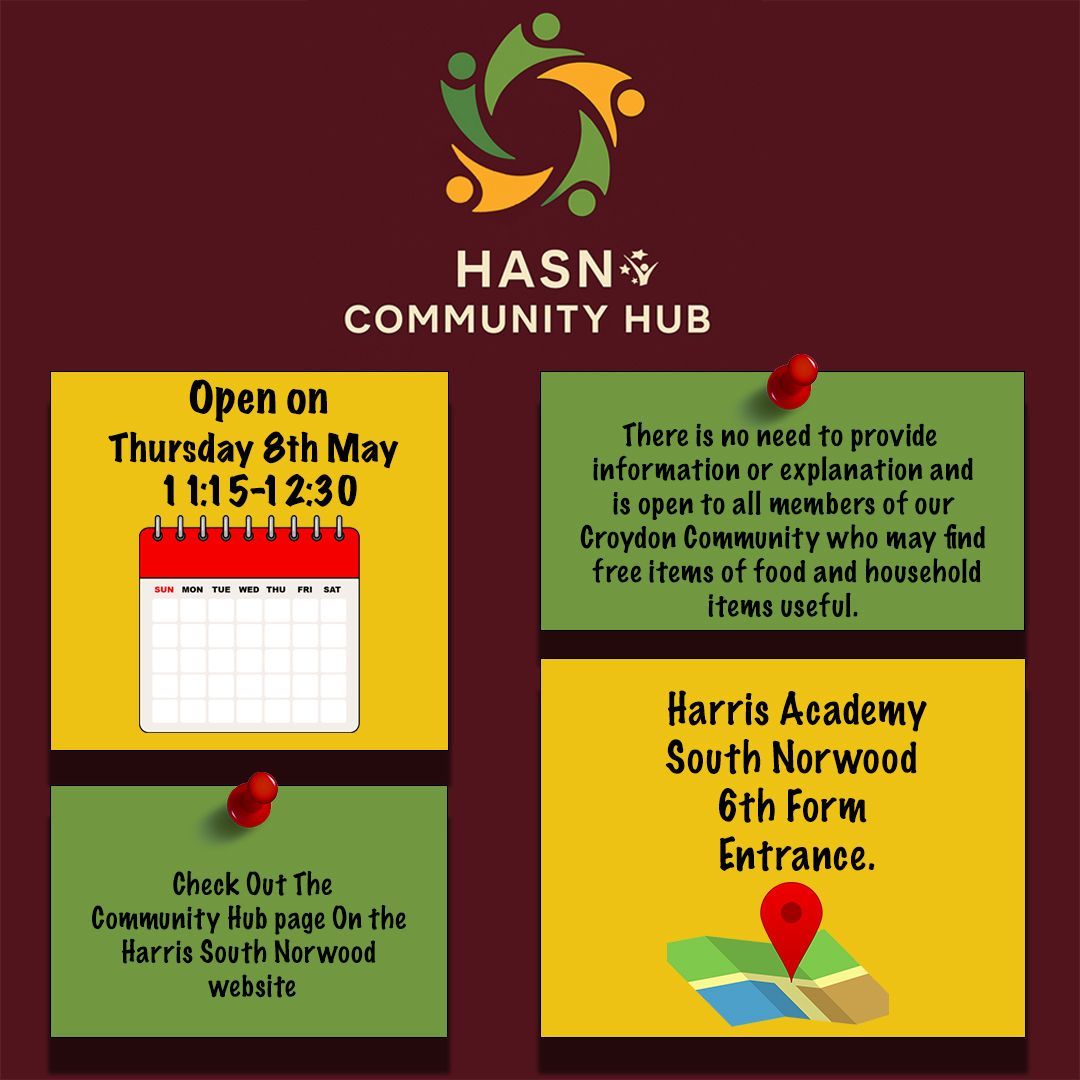The Norwood Curriculum
The Norwood Curriculum
Ambition
Our ambitious curriculum challenges students to explore fundamental truths about the human condition and the physical world, enabling them to see beyond the immediate context of our lives and become the best version of themselves they can be. The key to achieving this is that students know more and remember more. It is this that will empower them to meet the challenges they will face in their lives. Our curriculum intends to provide a solid foundation across a wide range of disciplines through our comprehensive Key Stage 3 programme, which meets the NC in full. This allows us to be ambitious for Key Stage 4, where all students continue to study an academic curriculum, taking one or more humanities subjects. This means that as many as possible are also studying a language and will complete the Ebacc qualification. This will maximise the number of students equipped to progress to higher education.
Knowledge is power
Our curriculum places building vocabulary and knowledge at its heart, helping all our learners develop both conceptual and disciplinary understanding in each subject and thereby become the best versions of themselves they can be. Developments in cognitive science have shown that the key to academic success and effective scholarship is working hard to ensure that knowledge and vocabulary is transferred, through rehearsal and retrieval, into Long-Term Memory, and our curriculum places the acquisition of core knowledge at its heart. It is this permanent store of knowledge that will enable our students to be effective readers, writers and evaluators, and which frees up cognitive space for them to deliberately practice their key subject skills. It is also this store of knowledge that will enable them to be politically literate citizens, able to navigate the diverse and sometimes misleading sources of information of the 21st century.
Beyond the classroom
We want to help students explore their passions, whether this is sports, performing, creating things, or business. The curriculum doesn’t end in the classroom, and we believe in creating opportunities that enable our students to be full and active contributors to society and to take the responsibilities of citizenship seriously. Kindness and gratitude are our touchstones. We want to give all our students the chance to take part in enriching activities that will enhance their cultural capital and enable them to feel comfortable in any environment. We stay true to our Business and Enterprise roots by ensuring our curriculum offers students regular contact with the working world and an important place for business and economics in the curriculum.
Equity
The Academy is committed to its duties under the Equality Act 2010 and the Special Educational Needs Regulations 2014. Our curriculum is underpinned by a commitment to equality of opportunity, and we strive to ensure that all students are able to succeed no matter what their entry point is. The most vulnerable often already face the greatest barriers; we seek to remove or mitigate these to create success for all. This means that we have a sharp focus on reading, writing, speaking and numeracy. Some will require specialist teaching to help develop the basics that were not formed appropriately in Key Stage 1 and 2. For others, this will be the development of subject-specific language and knowledge through specialist teachers. All teachers know their classes and cater for the individuals in them, with our SEND students supported through learning passports and high-quality teaching.
Planning
Subject Leaders are the key agents in planning the delivery of the curriculum in each subject. The primary focus of their role is to plan sequences of lessons that ensure that students master increasingly complex knowledge and skills, with each year’s learning building upon the last. Working with their department teams, they expertly drive the implementation of their subject by helping students know more and remember more. To view the plans for each subject, please visit the ‘Subjects’ page on our website. Every subject has a curriculum overview plan and progression plan for all year groups available on our website.
Each Subject Lead oversees the preparation of Schemes of Work for each year group. We develop schemes of work to support all teachers by setting out the curriculum for their subject with an emphasis on what is to be taught and in what order. All subjects create plans which deliver and revisit key knowledge throughout each year and that leads to the formation of key concepts in a subject area. When planning a unit, teachers define endpoints for each unit and then plan sequences of lessons that contribute to these endpoints. They will consider the key vocabulary that students need to know and plan strategies to help students know and remember more, such as interleaving or retrieval practice. They will make decisions about how often to revisit topics or practice skills.
All teachers ensure their lessons are planned to stretch and challenge the most able students in their classes as well as supporting those who sometimes struggle. Throughout their time at Harris Academy South Norwood, students who need extra support receive it through a wide range of channels, including within lessons, through learning passports, during after-school catch-up sessions and, where appropriate, via the LSS department.
Assessment Principles
Assessment is an ongoing process and is built into every lesson. Teachers assess student progress in a range of ways, through quality reading of students’ work, questioning and class discussion, end-of-unit tests and formal assessments. They carry out detailed question-level analysis of students’ work when appropriate and use this to identify strengths and areas of weakness so that they can intervene appropriately. They mark students’ books in line with our marking policy and provide students with feedback to respond to.
At least twice per year, students complete a formal assessment, which will be marked and moderated to establish how well each student can recall and apply what they have learnt. Subject Leaders (and teachers) analyse the test against their planned curriculum intents and produce a document which provides information about how well different aspects of the planned curriculum have been learnt. Time is then built into the calendar for teachers to discuss the outcomes and revisit points of difficulty.
All of this assessment activity provides valuable information on how well our students understand what is being taught and how well our curriculum is being implemented. This will inform both short- and medium-term planning because:
- Teachers will adapt their lessons to review points of difficulty and challenge misconceptions
- Subject leaders will review their schemes of work to maximise the impact of their curriculum.
At HASN, the curriculum is the progression model, and this can be seen in exercise books. Learning is a change in long-term memory, and so the more of the curriculum that has been committed to a student’s long-term memory, the more has been learnt by them, and the more progress has been made. Our summative assessments at HASN assess how much of the curriculum has been learnt by students and, therefore, indicate how they’re progressing through the curriculum.
Teaching and Learning at HASN
Curriculum Implementation
- ALL CPD is aimed at ensuring staff follow the HASN Way and learn what doing it well looks like. Staff over time should learn all the techniques below using their coaching conversations booklets as a guide.
- Most staff briefings and all HASN INSET will focus on techniques from the booklet, which show how to follow the HASN Way effectively. Every half-term, one subject meeting will be taken back as whole school training for one hour. There are also three 2-hour subject twilight sessions, which are also drawn from the booklet and cover the HASN Way.
- The HASN Way will be consistently pushed by Senior and Middle Leaders and driven through by Lead Practitioners and Lead Teachers. This is through their training sessions and their coaching and mentoring of staff.
- All staff will be part of an instructional coaching pair and will meet at each teaching and learning whole staff meeting to work together on a technique from the toolkit.
- Lead Teachers and Lead Practitioners will receive weekly training on the HASN way and Conversations Handbook.
- New staff complete induction sessions on Induction Day.

The HASN Way is the foundation for teaching at HASN
The Coaching Conversations toolkit outlines all of the teaching techniques we use
“Learning is a persistent change in knowledge. Thinking is the process that leads to such a change.”
Step 1: Do Now
The lesson begins with the title and a Do Now available for students to do. After writing and underlining the title, students always complete a Do Now. This is a short activity which focuses on prior learning and requires students to rehearse or retrieve prior learning. This could be short answer questions or a low-stakes quiz, for example. The teacher assesses what students have remembered, using either what is in their books or with mini-whiteboards, and responds by re-explaining where necessary.
Step 2: Introduce New Knowledge
The lesson continues with the introduction of new knowledge, usually either through teacher exposition, peppered with lots of questioning, or through guided reading. Where content is being read, the teacher checks understanding through questions at key points in the text, teaching new vocabulary and supplementing the text with useful background knowledge as the text is read.
Step 3: Model And Practice
Activities are now chosen which best check what students have understood. The activity or question is modelled by the teacher, and students then practice and demonstrate what they have learnt. When necessary, this part of the lesson may involve worked examples of live modelling.
Step 4: Assess And Respond
At this point, teachers assess the CORE understanding of students using one of the 5 Afl techniques: Mini-Whiteboards, Quality Reading, Hinge Questions, Exit Tickets, Cold Call. Most lessons should involve mini whiteboards and which maximise participation and feedback to the teacher on understanding.
Teachers then use that information to correct the misconceptions of individual students, or if the error is for multiple students, then reexplain to/model for the whole class before reassessing
Step 5: Highlight And Introduce The Next Learning
Every lesson, a student is highlighted and given 2 Harris points for endeavour. Students are shown the big picture by introducing the next learning.
Teaching for Literacy
Reading
- All teachers implement our three reading strategies: Double Reading, Layered Reading, and Zoning
- Students read aloud frequently in lessons
- Students are reading all the time, both for information and pleasure
Writing
- Students write/perform independently frequently (for 15 minutes of every single lesson / 30 minutes of every double lesson)
- Sentence construction and paragraph organisation are explicitly taught.
- Teachers live model good writing frequently using a disciplinary approach (e.g.what does good science writing look like)
Vocabulary
- Key vocabulary is pre-taught before reading and planned for.
- Spelling is explicitly taught (using etymology, for example)
Oracy
- Students are given frequent opportunities for structured talk through “turn and talk” activities.
- “Say it better” is used to encourage students to use good vocabulary






















